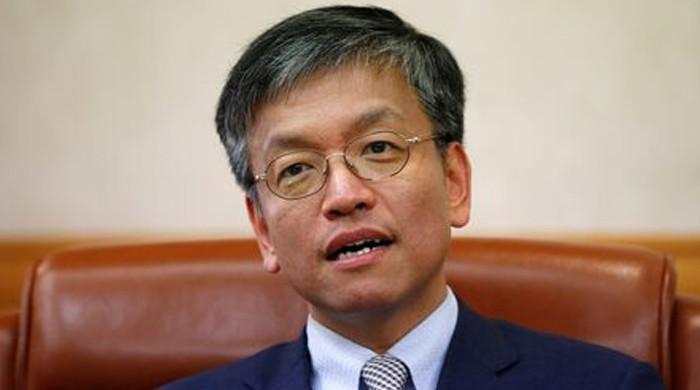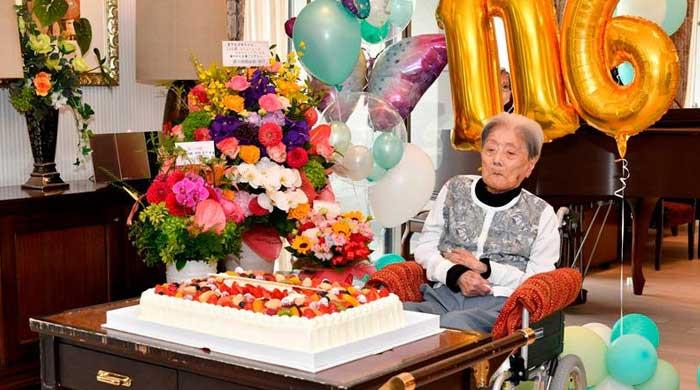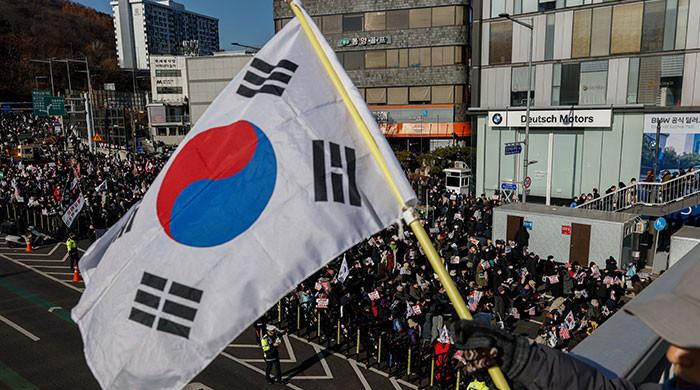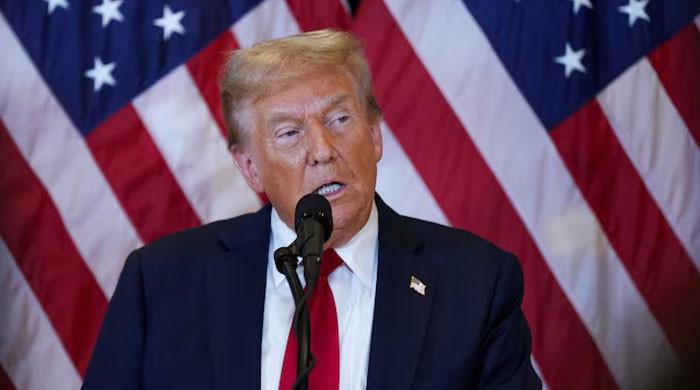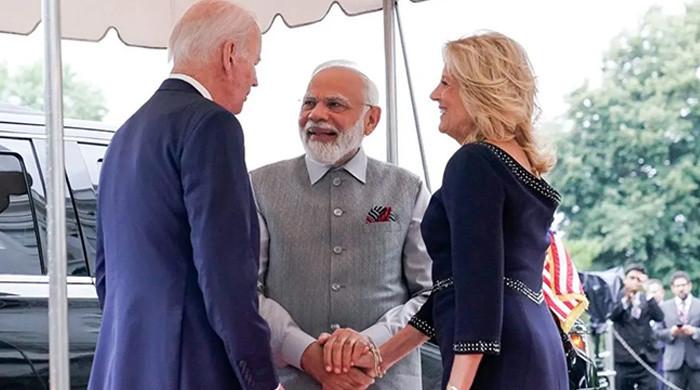Still long way to go for sustainable peace in Afghanistan, says US congressman Bera
Chairperson US House sub-committee on Asia talks Afghanistan, Iran in exclusive interview with Geo
February 03, 2020
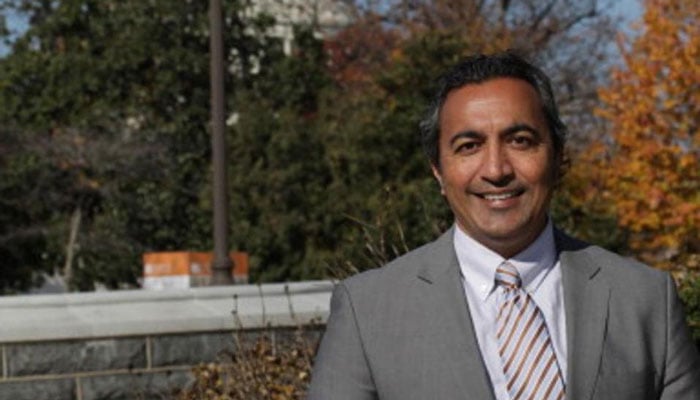
Chairperson of the US House Foreign Affairs Subcommittee on Asia, Ami Bera, last week cast aspersions on the short-term prospects of a peace agreement between the United States and Afghan Taliban, but admitted that the group may be given a role in the future government.
Speaking to the Pakistani community, the Indian-American congressman said there was a long way to go for peace in Afghanistan.
Also read: Trump meets 'friend' PM Imran, says will talk to Modi on Kashmir issue
"We have to define what sustaining peace in Afghanistan looks like," Bera said during an exclusive interview with Geo News, in which he talked at length about US, Iran and the prospects of a peace deal in Afghanistan.
"And, I think, there is still a long way to go," he added.
'Afghan peace process moving forward'
At the residence of Democrat Dr Asif Mahmood, Bera patiently heard the arguments of the Pakistani community against Indian atrocities in occupied Kashmir and expressed his strong opinions on the issues facing the community in the US, as well as abroad, vowing to take a principled stance for them.
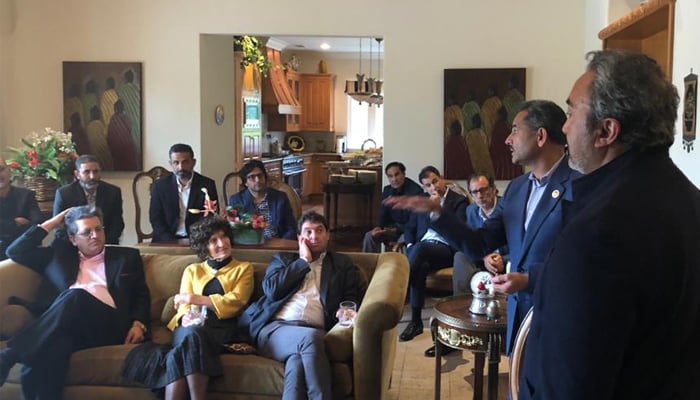
Democratic members of the US House of Representatives have in recent weeks tried to pick the brain of US Special Representative for Afghanistan Zalmay Khalilzad in order gauge details of the peace deal he is negotiating with the Taliban on behalf of US President Donald Trump.
However, reports suggest that Khalizad has been less-than-forthcoming on the matter, preferring to report directly to the US president. Bera was asked about the matter and the reason behind the distrust of Democrats in the White House, as well as about the details of the Afghan deal.
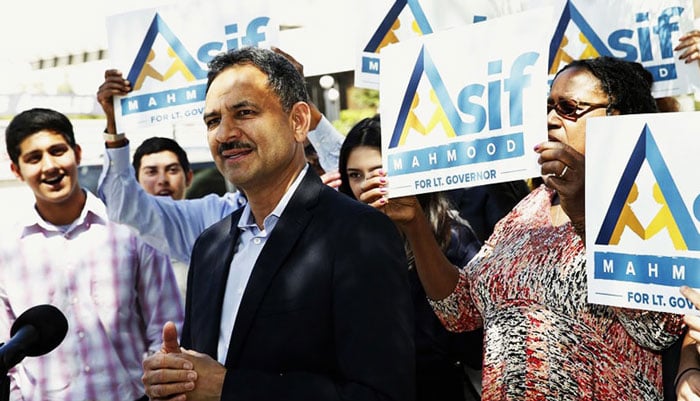
"Right now, our impression with the Afghan peace process is moving forward. There are negotiations between the United States and the Taliban. But, we see that as a starting point, not the ending point," he said in response to the question.
Also read: US House of Representatives may take up resolution on Kashmir
"I am not sure how close they are. But, if you can get to ceasefire then you really have to have Afghanistan government and the Taliban negotiating together," he admitted, hinting that the Taliban could be given a role in the government as peace talks progressed.
The US and the Taliban have come close to a peace deal at multiple occasions over the past few months, but realities on the ground have halted the developments. "it’s always difficult to get to that last part," Bera said in reference to the negotiations for truce in Afghanistan.
'Afghan people will decide what peace looks like'
As chances of a final agreement between the US government and the Taliban get brighter, it is highly likely that Khalizad will announce the terms of the agreement soon. But questions about how the deal will be implemented remain central to concerns about peace.
Also read: FM Qureshi discusses regional security with US lawmakers
"The Taliban and the Afghanistan government start negotiations first. They have to get to the ceasefire. Ultimately, we like Afghan people to decide what that sustaining peace looks like," Bera said in his observations on the matter.
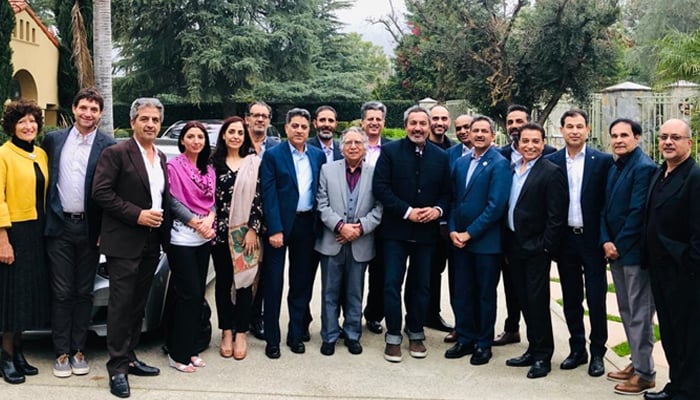
Although relatively simple and straight-forward, the words of Bera open the door to the possibility that during the initial ceasefire, Taliban may only halt attacks against the United States, but continue to pound positions of Afghan forces.
Another major concern for the US is whether the Taliban can guarantee the US that the Afghan soil will not be used for attacks against the US and its allies in the region. If the Taliban convince the US in this regard, a key ministry might be theirs for the taking, defence experts have said.
Also read: China helped Pakistan through difficult times, says PM Imran
"You still have Afghanistan elections that are not determined yet. So, you have to figure out who the next President of Afghanistan is? And, then start those negotiations. So, there is a way to go there," Bera said in response to a query about the specifics of the deal
Linked to Afghanistan is the US tensions with Iran. Recently, the US house passed legislation seeking to limit the presidential powers with regards to going to war. The House prohibited military action against Iran without congressional approval, repealing previous authorisations.
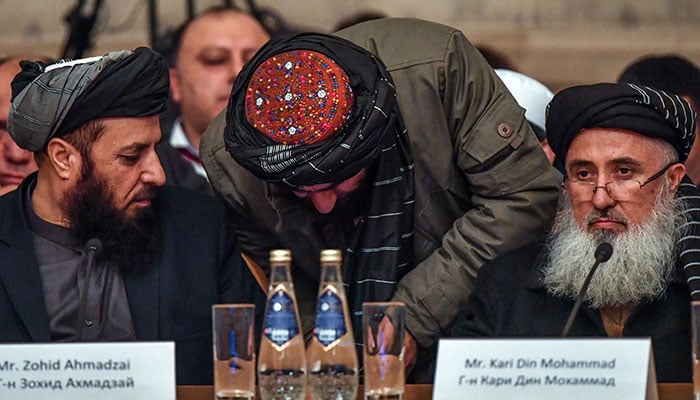
'Soleimani strike ill-advised'
When asked to comment on the recent strike that the US had undertaken in Baghdad, killing a top Iranian commander and hiking tensions with Tehran, Bera was of the opinion that the move was not very thought-out and the US House of Representatives had sent Trump a message after it.
"We think, it was an ill-advised move. We have sent a very clear message that the president doesn’t have the authorisation to go to war with Iran," Bera said, adding that diplomacy was the way forward for reducing further tensions in the region.
"This is where our European allies and friends can play a role in getting Iran back to the negotiating table," Bera said when asked whether diplomacy was possible given the recent tensions and the historical animosity between Washington and Tehran.
Also read: US diplomat Alice Wells arrives in Pakistan to discuss bilateral issues
Chances of talks with Iran have slimmed in recent weeks as the Middle Eastern country feels cornered on the global stage. The European allies of Tehran have not only ditched a Joint Comprehensive Plan of Action, but also issued vocal statement on trigger mechanisms.
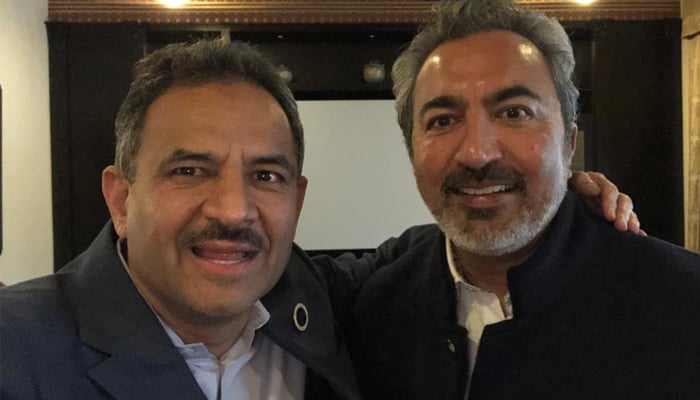
In this snap-back mechanism, the dispute resolution sessions may end up returning the UNSC sanctions on Iran. In that case, even staunch allies like China and Russia won’t be able to rescue Tehran, say experts. The Iranian regime also has outstanding obligations on nuclear enrichment.
Also read: Indian-American congresswoman urges US to intervene in occupied Kashmir
Experts say that in order to avoid war, it may have to end up making another and relatively broad based deal. Even if it doesn’t trust Trump, Tehran has hardly any other way out. Bera said that the previous deal with Iran had been the best deal the world could get.
"Look, I was a supporter of JCPOA, the Iran nuclear deal. I thought, it was the best deal that the world could get. It made Iran a lesser nuclear threat. And, I think the President has made a mistake by coming out of that deal."
"With that said, we are where, we are. I am a believer in dialogue. It’s better to have dialogue than go to war," he noted.






